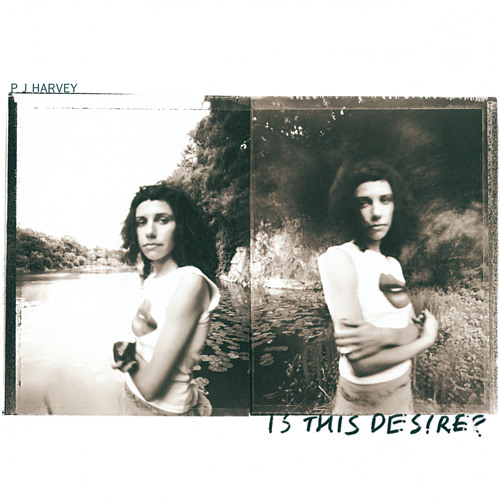ICYMI TUNES // PJ Harvey – The Wind

By Misha
I’ve been reading Bob Boilen’s charming book, Your Song Changed My Life, a collection of essays based on conversations with artists about the music that changed them forever. It is a wholly uncynical, reverential study of the power of this thing we call music, one that has me nodding along at almost every chapter, remembering where it began for me.
Boilen talks about this store in Bethesda, Maryland – where he grew up – that sold cheap records. He remembers going in and buying unknown LPs based on their album art.
I was born in 1991 in a town of 300 people in northeastern Washington; even if records had been a thing then, the nearest place to find them would have been over two hours away. But I recognized in the anecdote those first sparks of an overwhelming desire to devour music – compulsively and often almost at random.
When I first started using the family computer I learned you could go to Amazon to listen to 30 second samples of songs. (This was, of course, in the days of dial up, when a 30 second 128 kbps stream took 2 minutes to load.) So, as I waited I’d read the customer reviews, which would invariably be littered with references to bands I’d never heard.
Thus, a search for Dashboard Confessional’s debut album ended up being my introduction to The Cure. The Dandy Warhols brought me to Brian Jonestown Massacre and Brendan Benson. The White Stripes led me to The Black Keys, which led me to Black Rebel Motorcycle Club, The Jesus and Mary Chain, and The Kills. And somewhere around 1 am, deep in my clickhole research of The Kills, was the first time I heard the name “PJ Harvey.”
Now I have a vocabulary to describe PJ Harvey. Her early albums are kind of like if you drew a straight line between Patti Smith and Allison Moss with strong influences from both punk and 90s trip-hop. Like Patti Smith, the artist to whom she is perhaps most frequently compared, her work reflects her politics more overtly in later works, a choice which sometimes pays off and sometimes doesn’t.
But the first time I heard PJ Harvey she was just a strange British voice in a sea of new and strange voices. There was something about it that stuck in memory but didn’t translate to repeat listens for my adolescent brain. Nonetheless, she became a trail marker in my musical journey.
When a friend offered me a ticket to her show at The Greek a couple of weeks back, that memory came back to me. I felt instinctively that it would be a show I’d regret missing.
Having only really listened to Is This Desire and parts of her savage debut, Dry – both sparse, pointillistic masterpieces – I was ill-prepared for the full, orchestral set that sent out not just heat, but also warmth, into the chilly LA evening air.
Harvey, a tiny vision in black feathers and some kind of tattered purple overcoat-turned-fashion-statement, played the crowd almost as skillfully as her saxophone, and between jumping up in swaying reverence, there was little time for introspection during the two hour show.
But as I drove home, I couldn’t help but think back to the wide-eyed girl sitting in front of her computer, fighting off sleep and listening to iconic albums in low bitrate snippets. I think I sensed then that PJ Harvey had something that I didn’t understand in the moment but would need later. She’s an artist who, I like to think, makes music for the same reason I listen to it – not because it’s beautiful or pleasing, (though it often is) but because there are whole minutes where it’s the most powerful fucking thing in the world.
Harvey has spent a career harnessing this power, both politically and emotionally. It’s not always pretty, but it’s always raw and honest and brutal. It’s people like her that make the title of Boilen’s book – Your Song Changed My Life – make sense.
Buy PJ Harvey’s latest album, The Hope Six Demolition Project here. Catch her live (highly recommended) here. Buy Your Song Changed My Life here.




